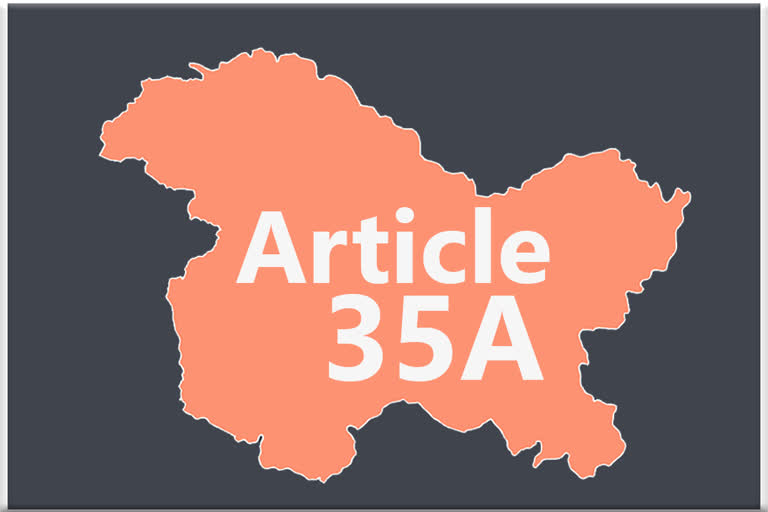Jammu and Kashmir: With a sharp rise in troops deployment in Jammu and Kashmir, issuance of security advisory seeking evacuation of tourists from the state, and speculations over central government mulling to scrap Articles 35A - granting special status to Jammu and Kashmir - have triggered panic in the state.
Political parties from the Valley have been expressing their dissatisfaction with the recent developments and have been vocal about resisting any attempt at abrogating Article 35A.
Earlier, Arun Jaitley, a veteran , had said in a book written by Sonia Singh that Article 35A "was an executive insertion by Presidential Notification. It entered the Constitution through the back door. It contains a fundamental breach of the Right to Equality in as much as it promotes discrimination between two categories of citizens based on an irrational criterion. It is constitutionally vulnerable."
The statement coming from one of the country's top-most lawyers and a veteran BJP leader reflects the vulnerability of the contented Article.
What is Article 35A?
- Article 35A of the Constitution empowers Jammu and Kashmir legislature to define state's "permanent residents" and their special rights and privileges. It was added to the Constitution through a Presidential order of 1954 with the then J&K government's concurrence.
History behind Article 35A
- Maharaja Hari Singh- Dogra ruler of the princely state of J&K- through notifications in 1927 and 1932, made a law that defined state subjects and their rights. The law also regulated migrants to the state. J&K then joined India through the instrument of accession signed by its ruler Hari Singh in October 1947.
- In 1949, Sheikh Abdullah, who took over reins from the Dogra ruler after J&K's accession, negotiated the state's political relationship with New Delhi leading to the inclusion of Article 370 in the Constitution.
- Article 370 guarantees special status to Jammu and Kashmir, restricting Union's legislative powers over three areas: Defence, Foreign Affairs and Communications.
- However, under the 1952 Delhi Agreement between Abdullah and Nehru, several provisions of the Constitution were extended to J&K via presidential order in 1954. Article 35A was also inserted then into the Constitution.
- J&K's separate Constitution was framed in 1956. It retained Maharaja's definition of permanent residents of the state which means: All persons born or settled within the state before 1911 or after having lawfully acquired immovable property resident in the state for not less than ten years or prior to that date. All emigrants from Jammu and Kashmir, including those who migrated to Pakistan, are considered state subjects. The descendants of emigrants are considered state subjects for two generations.
- Permanent resident law prohibits non-permanent residents from settling permanently in the state, acquiring immovable property, government jobs, scholarships and aid.
- However, the law was interpreted as discriminatory against the J&K women. It disqualified them from their state subject rights if they married non-permanent residents. But, in a landmark judgment in October 2002, the J&K high court held that women married to non-permanent residents will not lose their rights. But the children of such women won't have succession rights.
Why is Article 35A being contended?
- We the Citizens, an NGO, challenged Article 35A in the Supreme Court in 2014 on grounds that it was not added to the Constitution through amendment under Article 368. It was never presented before Parliament, and came into effect immediately, the group argued.
- In another case in the apex court, two Kashmiri women argued that the state's laws, drawn from 35A, had disenfranchised their children.
Also read: Anti-Corruption Bureau notice to Mehbooba over JK Bank appointments



